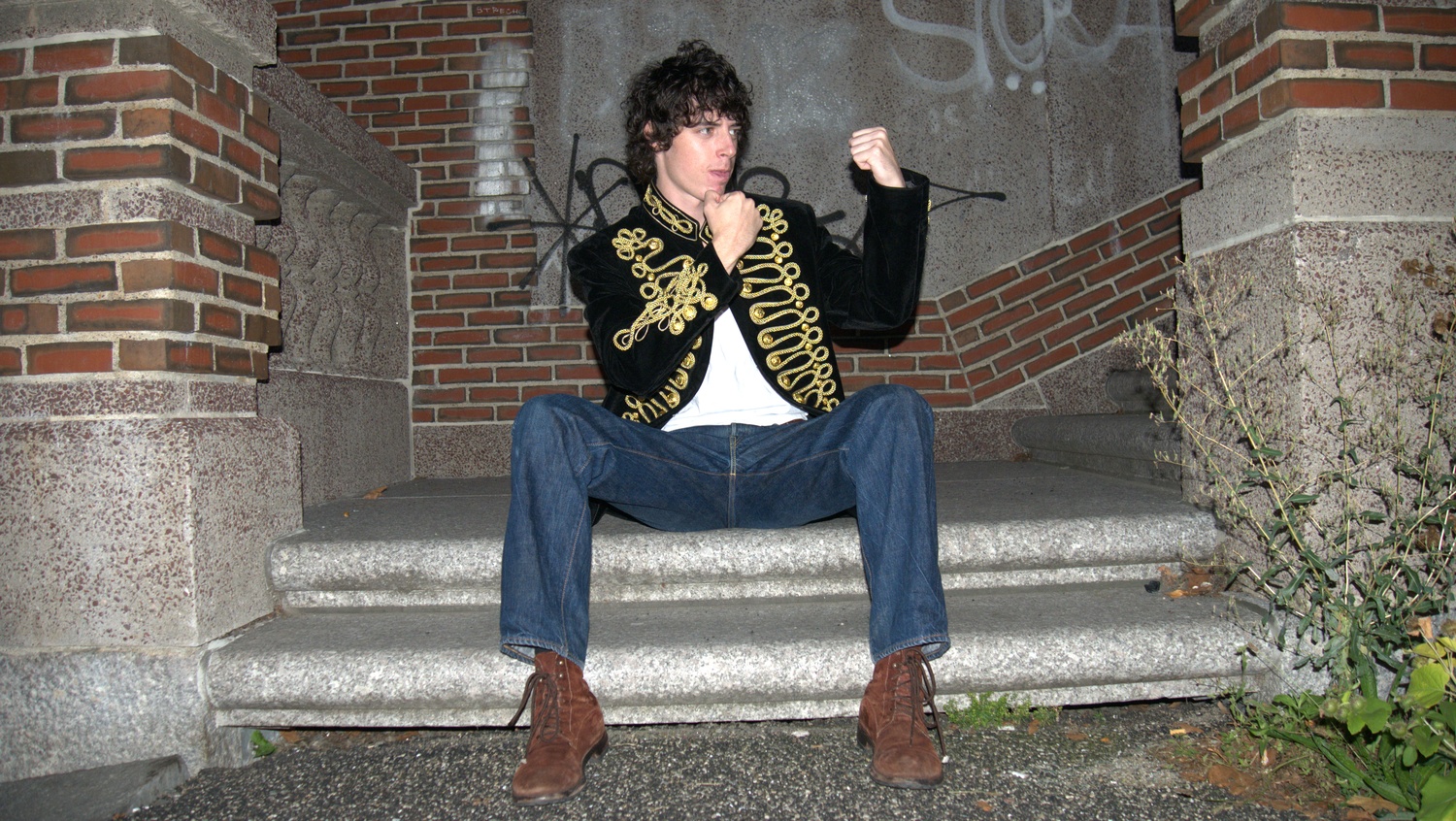
News
Summers Will Not Finish Semester of Teaching as Harvard Investigates Epstein Ties

News
Harvard College Students Report Favoring Divestment from Israel in HUA Survey

News
‘He Should Resign’: Harvard Undergrads Take Hard Line Against Summers Over Epstein Scandal

News
Harvard To Launch New Investigation Into Epstein’s Ties to Summers, Other University Affiliates

News
Harvard Students To Vote on Divestment From Israel in Inaugural HUA Election Survey
Artist Profile: For Emil Droga ’26-’27, Music is a ‘Great Bermuda Triangle’

Few artists ever get the opportunity to professionally record an original song, let alone at the age of 9.
But for Emil Droga ’26-’27, this early foray into music was spurred not by formal ambition, but rather by curiosity and a single school assignment.
“We were tasked with the homework assignment to rewrite lyrics to an existing song. I thought, why not just write something myself?” Droga said in an interview with The Crimson. “And then that got blown out of proportion within my school, and then I just kept writing, I loved it. I got the bug.”
This initial experiment — founded in a desire to create something original and personal — quickly developed into not only a lifelong pursuit, but a cornerstone of Droga’s life.
“It’s the great Bermuda Triangle in my life. So I get lost,” he said.
Explaining how he managed to record his first single and develop his artistic voice at such a young age, Droga especially credits lifelong mentor Bobbie Lee Stamper, who has been deeply influential in his musical and personal development.
“I was very fortunate my school had a couple great guys, particularly Bobbie Lee Stamper, who’s this wonderful musician, guitarist, producer,” Emil said. “He was like my mentor throughout most of my life.”
This early exposure to writing and recording music instilled in Droga a unique blend of technical curiosity and emotional sensitivity — qualities that continue to define his work. However, as Droga has matured both artistically and personally, his creative process has also slowly evolved. There is no fixed starting point for any of Droga’s songs; he embraces the organic spontaneity that lies at the heart of songwriting.
“Every song is different. Some will come very quickly,” Droga said. “Some will come as if from a dream.”
This sense of fluidity is not only evident in Droga’s music but also in his myriad influences, which span diverse genres and generations. In particular, he cites lyricists like Leonard Cohen, Bob Dylan, and Tom Waits as artists he admires deeply, along with poets such as Gerard Manley Hopkins, who have dramatically shaped his approach to songwriting. But Droga’s music is also shaped by innovative electronic musicians like Squarepusher and Ceephax Acid Crew, and experimental releases from the Reflex Records era.
“Nowadays I’ve been more inspired by World Music and a lot of more electronic stuff, too,” Droga said, reflecting on how his tastes have evolved.
Through Peter Gabriel’s label, Real World Records, Droga discovered artists like Nusrat Fateh Ali Khan, a Pakistani singer and songwriter whom he calls the “king of kings.” Exposure to such a diverse range of influences has broadened his sense of what music can be, with his own songs serving as a synthesis of these seemingly disparate corners of music.
While Droga produces some of his own music, collaboration is central to his creative process. During his gap semester from Harvard, Droga immersed himself in the inner workings of the music industry, working for a record studio in New York City while connecting with other artists to broaden his musical network.
“You just find yourself in that whole New York sort of world, bumming around different basement studios, or playing guitar on people’s things,” Droga said, “So through that, I sort of met producers, but no one who I’ve necessarily clicked with.”
Still searching for new producers to work with away from his home in Australia, Droga outlined the ingredients for a truly effective collaboration.
“It’s like a conversation. You don’t want to be in a conversation with someone who knows exactly what you know, because then it becomes a bit flat,” he said.
Recently, Droga has been engaging himself in the live music scene in Cambridge, performing both original post-punk, no wave music, and covers with a new band.
“I’m of the belief that music now should really be live, and I think hopefully there’s more of a renaissance of having live bands, live groups. You see a lot of drawing people out of their hobbles and into the light,” Droga said. “I think you also just build your chops exponentially playing live.”
While Droga’s music started as a solo project, it has since transformed into a lifelong collaborative platform, blending the sounds of his childhood with the musical experimentation of his present. Droga said it simply: “I love writing and making music” — this passion serves as both his mission and mantra.
Want to keep up with breaking news? Subscribe to our email newsletter.
